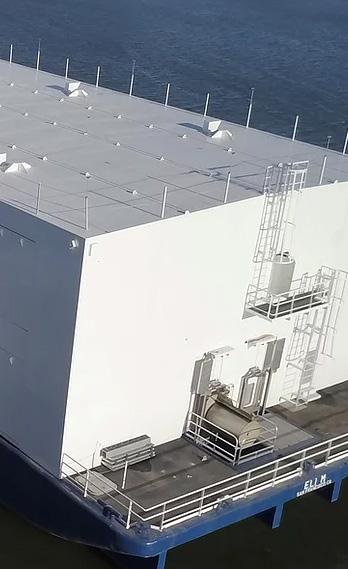This is the headline of the feature






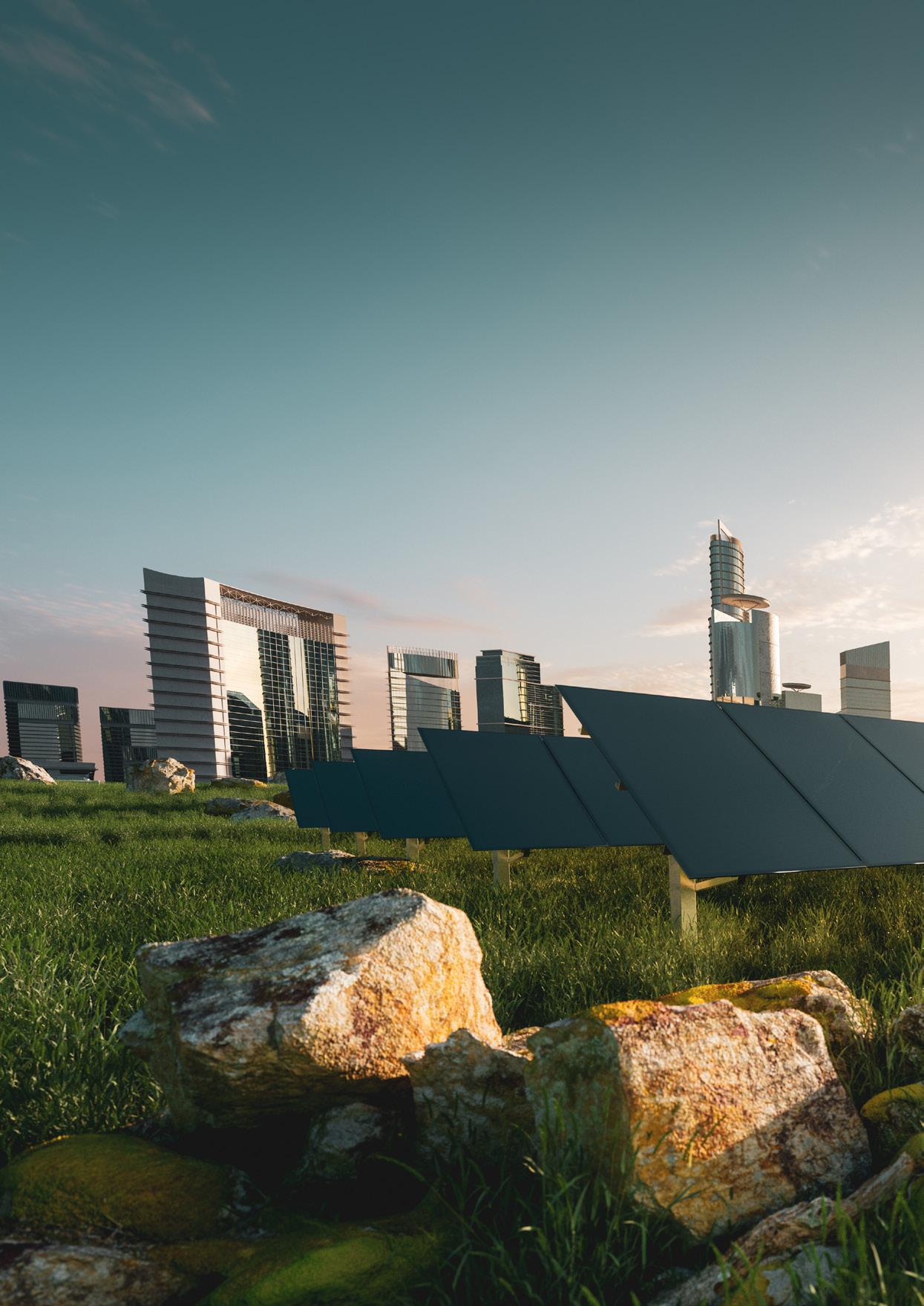
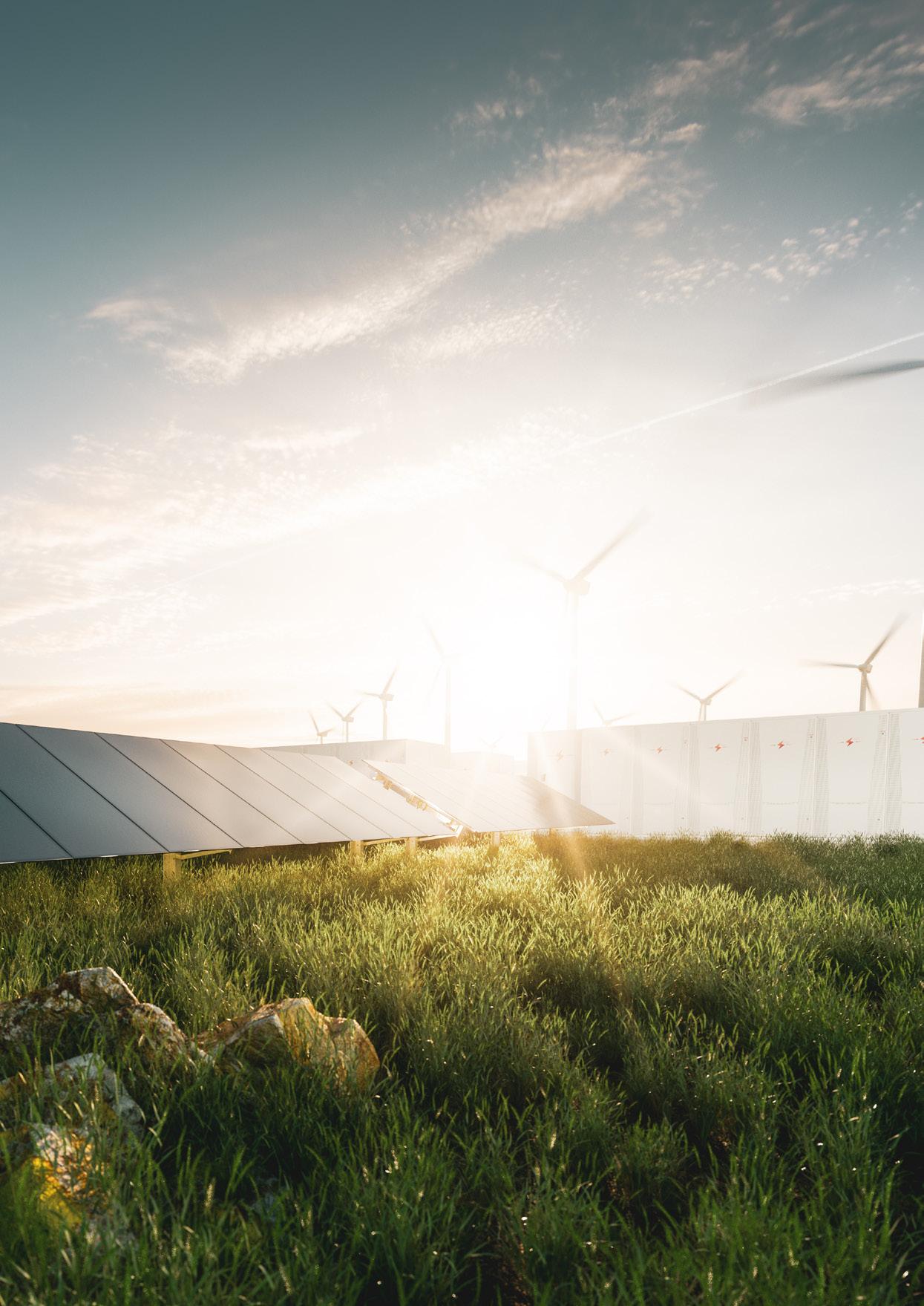
Sustainability is about forward thinking. The assessment of past, current and future activities provides a holistic view of emissions in the supply chain and social impact among communities, but switching present planning to foresight mitigates emissions and reduces costs.
This is the primary goal of Black & Veatch from both an internal and external perspective as it works with clients to achieve environmental, social and governance (ESG) compliance without compromising on profit. A mindset shift is in order, and firms in the engineering, procurement and construction (EPC) industry must build a circular economy into their projects from the concept phase.
Experts from Black & Veatch are working collectively to drive sustainability within their organisation as a case study to share with clients and help them overcome similar changes. Embedding sustainability into project planning requires commitment to the cause, education from professionals, and the necessary digital tools to manage energy and material sourcing.
This report features industry insights from key personnel at Black & Veatch who are invested in its activities and translate the company’s achievements into professional services for its core industries.


Amanda O’Dell and Ajay Kasarabada of Black & Veatch are making sustainability known across the company and among its construction and engineering clients
Sustainability has been ingrained in Black & Veatch’s DNA for more than a century, whose strong environmental credentials predate the term ‘carbon footprint’ by 70 years.

Black & Veatch is an employee-owned global engineering, procurement, consulting and construction company, headquartered in Overland Park, Kansas, with a century’s work in sustainable infrastructure.
“Since 1915, we have helped our clients improve the lives of people around the world by addressing the resilience and reliability of their most important infrastructure assets,” says Amanda O’Dell, Corporate Sustainability Manager.
A lot has changed since Black & Veatch was founded, not least the meaning of the term ‘value’. Back then, it meant merely the cost of a product or service. But in today’s world, ‘value’ references a firm’s reputation and behaviour as much as it does price tags.
ESG compliance is of monumental importance, with investors, stakeholders and customers all expecting best practice corporate behaviour in this area.
"We’re advocates of environmental stewardship,” says O’Dell, who has the task of ensuring compliance across the business. “This includes optimal use of natural resources and ESG management across business operations.” O’Dell also says ESG and diversity, equity and inclusion (DEI) both shape relationships with suppliers.
“Providing equal access to all types of suppliers is important at a very human level, but it also has a profound socioeconomic impact,” says O’Dell.
She goes on to cite data suggesting that while women and those from marginalised communities are well represented in the realm of small firms, this is not the case in the wider business world.
“While 99% of US companies meet the definition of a small business, 50% of those are either woman or minority-owned — representing only 7% of the total revenue of all US businesses.”
Addressing this is critical for Black & Veatch and something it echoes through its engagements with its clients. Not only does this have an impact on underrepresented groups and brings small businesses into the fold, but diversity creates a more competitive supply chain — more resilient to industry disruptions — and breeds innovation among businesses.
The Sustainable by Design initiative is a commitment by Black & Veatch to develop long-term infrastructure in a sustainable way, in aid of improving quality of life while increasing economic activity sustainably.
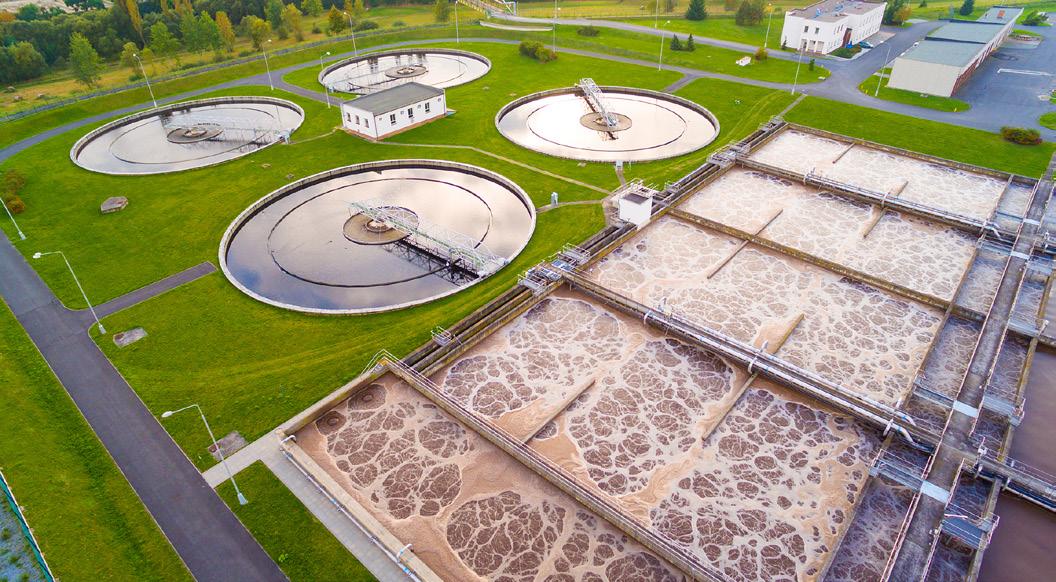
Through the Sustainable by Design commitment, the company will adhere to various long-term objectives that shape its approach to an equitable, sustainable industry. Following the transformation of its organisational structure, Black & Veatch will leverage this to implement the framework to reach its goals:
• To utilise pre-qualification survey data to evaluate potential and existing vendors’ environmental, social and governance (ESG) practices, and ensure they adhere to Black & Veatch's sustainability vision
• To continuously update its sustainability policy to reflect its 2023 commitments
• Train its team of professionals on the corporate sustainability programme
• Establish feedback loops with clients to assess the value of the programme
• Drive sustainability as a mandatory practice across all projects
• Develop a leaner use of materials and increase recyclability
All professionals — engineers, consultants and construction members — will adhere to these objectives to ensure the longevity of its projects in adherence with the company’s climate goals. Black & Veatch recognises that, through this commitment, each and every individual within the organisation has the ability to contribute to a better world: preserving life, protecting the environment, and considering the lasting impacts of infrastructure.
To see the Sustainable by Design commitment in action, click here.
With its long track record of sustainability experience, Black & Veatch is well-placed to support clients on their ESG journeys.
The company’s Director of Environmental Solutions, Ajay Kasarabada, handles client-focused ESG strategy, helping businesses embed compliance into commercial processes.
“When it comes to sustainability on the project execution side, we can test on our own projects first, and then share what we learned with our clients,” says Kasarabada. “We implement our own policies and processes for designing and engineering projects, as well as how we procure equipment and use it in construction.”
AMANDA O’DELL CORPORATE SUSTAINABILITY MANAGER, BLACK & VEATCH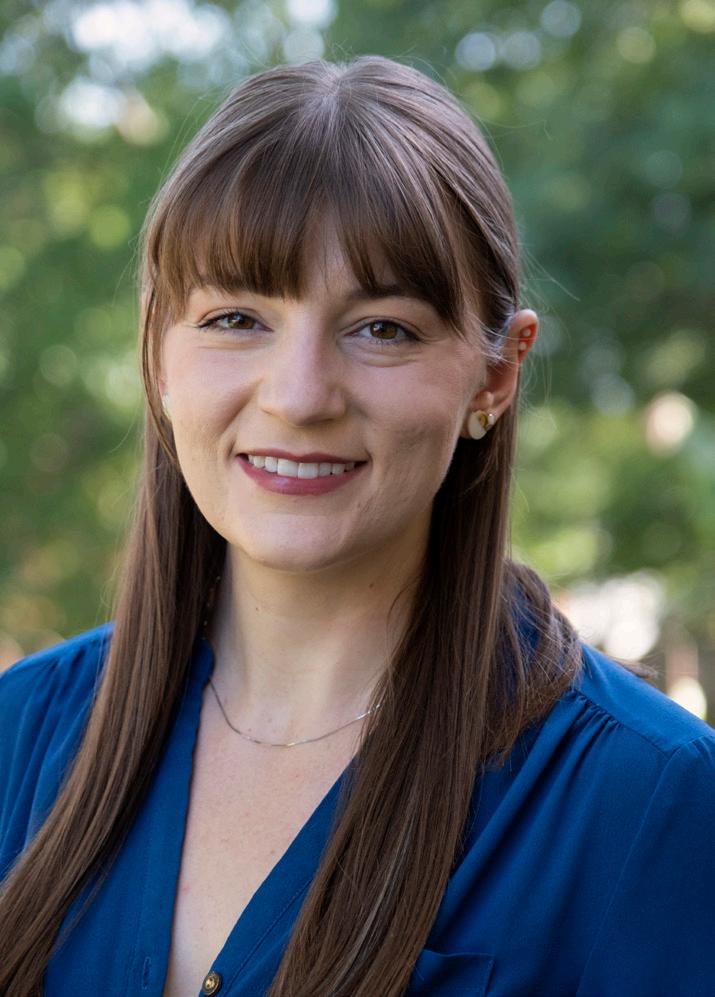
This provides Black & Veatch with firsthand insights to share, allowing its clients to leverage sustainable sourcing with a procurement and construction strategy that has already been applied in their industry. The result: manufactured goods are produced with lower carbon emissions, staff are treated fairly throughout the supply chain, and transport emissions are reduced.
Kasarabada also notes there has been a shift away from the previous industry strategy — cost optimisation and profitability — to a triple-bottom-line approach that also includes a social and environmental impact.
“This now comprises a major portion of our client process,” he says. “Profit is important, but there is more emphasis on the importance of having a sustainable mindset towards construction.”
He adds: “The biggest challenge is investment in sustainability and ESG. This does not directly result in a price increase of suppliers’ products, because price is dictated by market forces. They have to think about how they justify cost in terms of impact.”
“We’re advocates of environmental stewardship. This includes optimal use of natural resources and ESG management across business operations”
Amanda O’Dell
TITLE: CORPORATE SUSTAINABILITY MANAGER
INDUSTRY: ENGINEERING
LOCATION: UNITED STATES
Amanda O’Dell is a Corporate Sustainability Manager at Black & Veatch. She has worked as an engineer and sustainability specialist in the infrastructure industry for over eight
years. O’Dell develops and leads Black & Veatch’s corporate
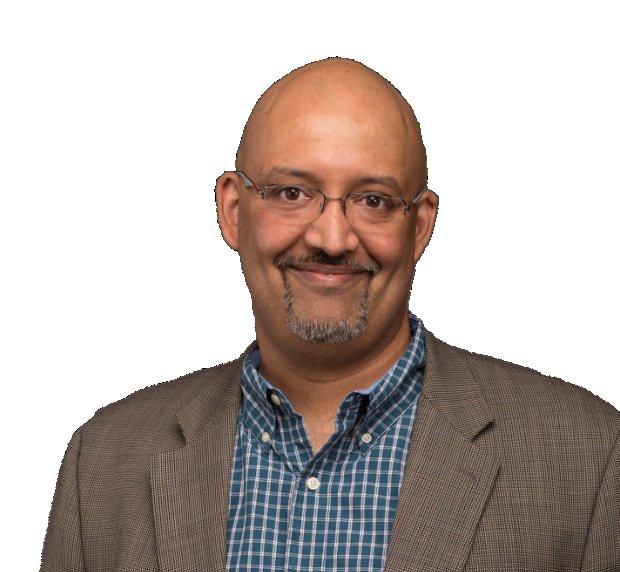
sustainability programme and ensures ESG goals are set, tracked and met. She provides leadership and diverse analytical support for Black & Veatch’s sustainability programmes and focuses on industry-specific approaches to implementing continuous improvement programmes in support of the companies’ sustainability commitments.
TITLE: ASSOCIATE VICE PRESIDENT AND DIRECTOR, ENVIRONMENTAL SOLUTIONS
INDUSTRY: ENGINEERING
LOCATION: UNITED STATES
Ajay Kasarabada is an Associate Vice President and Director, Environmental Solutions at Black & Veatch. Kasarabada has worked at the company for 23 years and brings in an ecosystem of experience, from planning to implementation, that comprises air quality and GHG emissions, distributed generation and renewable energy, electrification and decarbonisation road
mapping applied across various industrial sectors. The environmental solutions team’s vision is to bring their clients global experience and local knowledge to help create business value with innovative and right-sized solutions for their environmental, sustainability and

Cindy Wallis-Lage and Kristie Deiuliis of Black & Veatch on how resilience comes from an integrated approach to ESG Sustainability goes beyond ESG; it has become a staple for internal and external business operations. It is an ongoing process, one that relies on continuous outreach, education, and partnerships aligned with ESG goals.
As a trusted group of advisors and innovative thinkers, Black & Veatch’s approach to client support comes from

within the business as ESG takes precedence over all aspects of its operations.
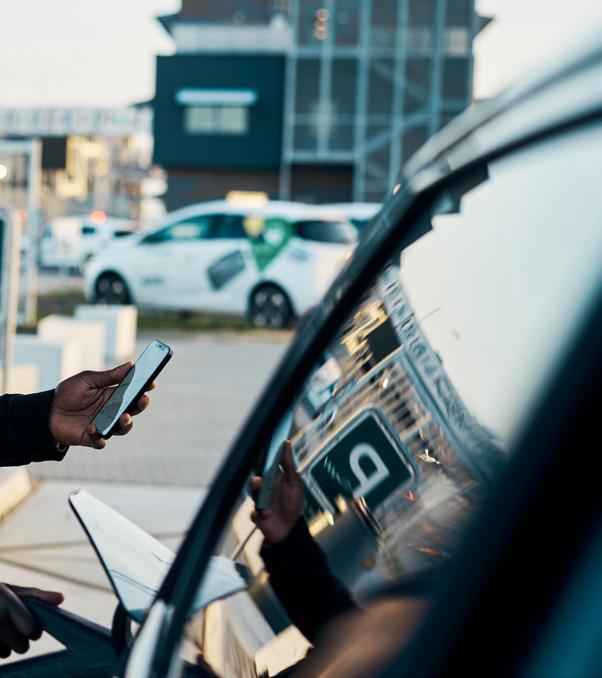
“It's beyond just focusing on renewable energy and clean fuels as energy sources,” says Cindy Wallis-Lage, Executive Director, Sustainability and Resilience at Black & Veatch. “It also involves looking at water projects, broadband projects, smart cities, environmental projects and food production, such that we are holistically driving sustainability improvements.”
An integrated sustainability strategy creates resilience Sustainability is a corporate social responsibility, but resilience is something that companies can and should integrate into their operations. Black & Veatch offers its clients insights into how they can assess their value chains and make sustainable decisions in EPC with consideration for renewable energy and new technologies, all of which must integrate in alignment with sustainability principles to achieve costefficiency and long-term resilience.
“We have an incredibly strong value proposition and services and solutions that help our clients navigate the technology options before they commit to a path forward. An important role Black & Veatch plays in this exploration is to create a strategic and tactical fact base from which our clients can assess commercial viability, risk mitigation and opportunities to monetise their priorities,” says Kristie Deiuliis, Managing Director, Decarbonization Strategy & Planning at Black & Veatch.
The company has a key role to play in supporting its clients and devising its sustainability solutions in-house puts Black & Veatch in a great position to manage the onboarding and overall success. When it comes to making sustainable business decisions, Black & Veatch clients are made aware of the benefits of workforce alignment. This means alignment with their sustainability strategies and their ability to adopt new solutions to facilitate their company’s vision.
KRISTIE DEIULIIS MANAGING DIRECTORSTRATEGY & PLANNING, BLACK & VEATCH“We have an incredibly strong value proposition as well as services and solutions that help our clients navigate technologies”
“When you ask them to define sustainability, you will get many different answers because we all look at it through the lens of our own experiences,” says Wallis-Lage. To follow up, she explains that organisations must figure out how to “create a common understanding of what they’re trying to achieve at the high level, which is what I’m trying to make sure we’re doing at Black & Veatch.”
Black & Veatch emphasises and demonstrates the importance of a skills audit. Without the necessary skills in place within its clients’ organisations, implementing sustainability transformation will result in them being caught up at the first hurdle — meaning without the necessary skills in the workforce, they will struggle to put their visions in motion.
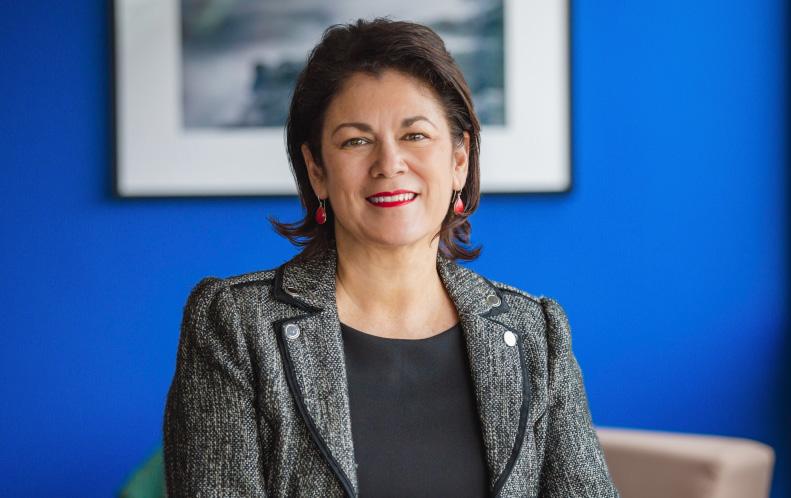
“To get people to align to sustainability goals, it is really important that we establish the purpose,” says Wallis-Lage. “It involves an understanding of the ‘why’ and then making sure that we're providing all of the skill sets, knowledge and thought leadership that we need to help our clients achieve what they need.”
Over the next 12 months, Black & Veatch will help its clients in this area while leveraging new technologies to ensure alignment of focus across their teams and integrating sustainable principles into their everyday working lives.
Cindy Wallis-LageTITLE: EXECUTIVE DIRECTOR
INDUSTRY: ENGINEERING
LOCATION: UNITED STATES
Cindy Wallis-Lage is an Executive Director at Black & Veatch. In September 2022, Wallis-Lage announced her retirement after 36 years of working for the company. She served as President of Black & Veatch’s water business and is a member of the board of directors. An active champion of water’s true value and its impact on sustainable communities, she has been focused on enterprise-wide client sustainability and resilience.
Wallis-Lage joined the company in 1986 and is well known in the industry
for her expertise in the treatment and reuse of water and wastewater
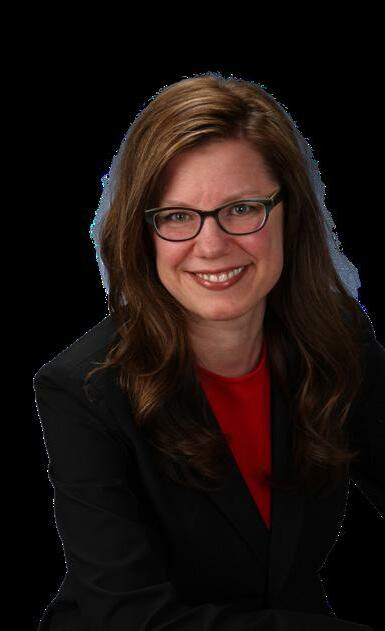
resources. Wallis-Lage has been involved in more than 100 projects globally in both the municipal and industrial sectors. She joined the Black & Veatch board of directors in 2012 and currently serves on the board of directors for the US Water Alliance and on the leadership Council for Water For People. WallisLage earned a bachelor’s degree in civil engineering from Kansas State University and her master’s degree in environmental health engineering from the University of Kansas. She also serves on the Engineering Advisory Council at Kansas State University.
TITLE: MANAGING DIRECTOR - STRATEGY & PLANNING
INDUSTRY: ENGINEERING
LOCATION: UNITED STATES
Kristie Deiuliis is a Managing Director at Black & Veatch, leading decarbonisation strategy and planning initiatives. She is focused on business model transformation, investment strategies, regulatory impacts and technology implementation for Fortune 500 companies and energy asset owners/ operators across multiple industries. With 27 years in the energy industry, Deiuliis leads strategic initiatives, driving the development of economic policy,
low-carbon fuels and technologies, and risk assessments for a broad range of global top-tier clients. Her experience spans energy industry domains, including wholesale and retail (regulated and competitive) markets, distributed energy resource business models, market entry and expansion strategies, and business case investment strategies for companies seeking to pivot or accelerate specific goals.
JC Alonzo of Black & Veatch explains why reactive sustainability is more costly than a forward-thinking approach
The built environment must become more sustainable. For this to happen, more consideration must be given to the design phase of every construction project. Then, design and construction firms can actively shape their industry's operations through a circular economy.
Climate change affects many facets of life, and the built environment is subject to increased risk of natural disasters. As a result, companies must first change their approach to consider the effects of building
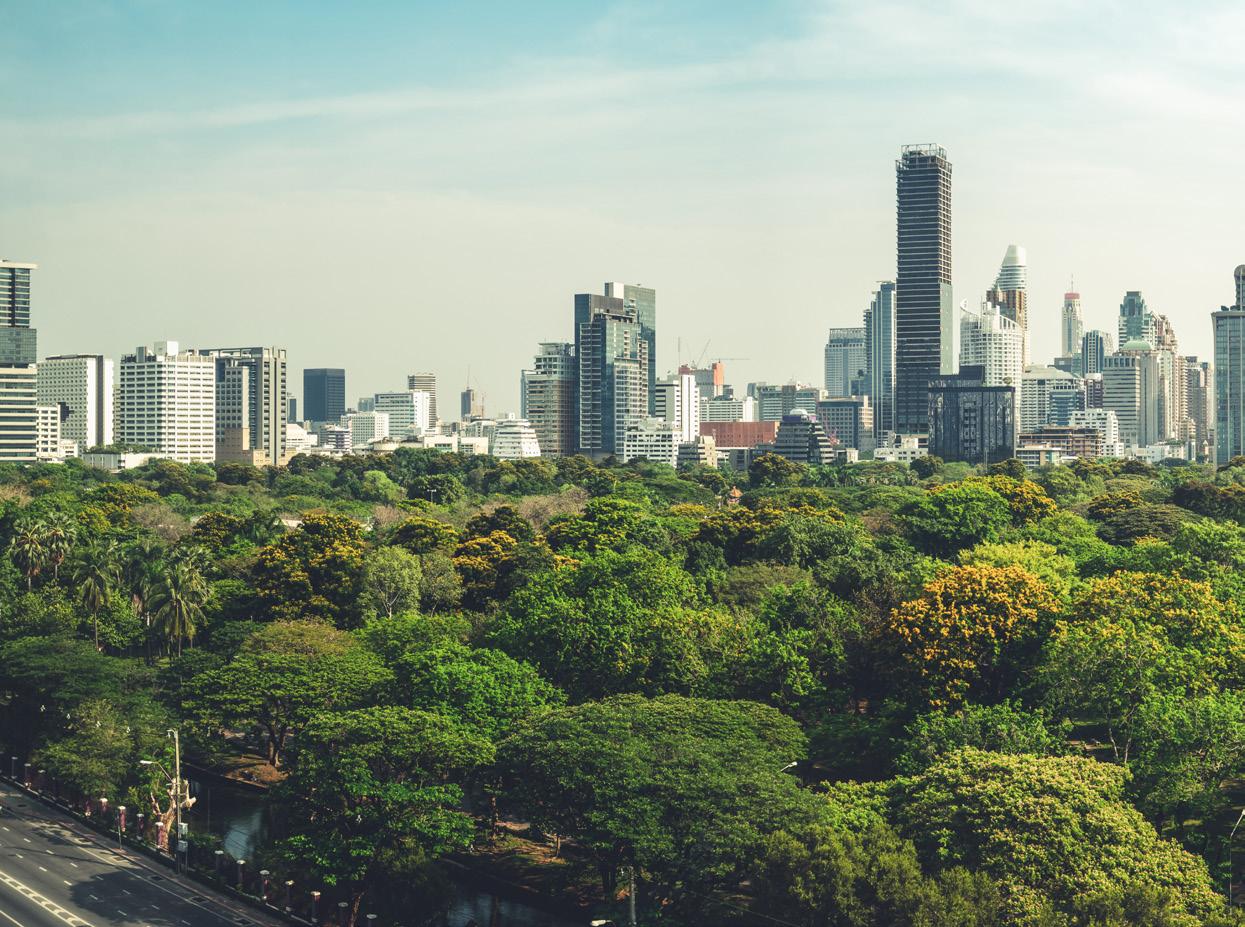
design for efficiency, resiliency and social and economic impacts.
Organisations are often torn by the cost of sustainable development and stuck in the process of designing first and implementing sustainable initiatives later. Black & Veatch supports clients by encouraging a more proactive approach and puts responsible sourcing and design at the forefront of every project.
A reactive approach to sustainability costs time and money
Organisations struggle with implementation and timing of when to implement sustainability into their projects. JC Alonzo, Senior Environmental Sustainability Specialist at Black & Veatch, says when sustainable principles are applied at the beginning of a project to encourage
emissions reduction, localisation of material sourcing, and building energy efficiency, then long-term project costs are optimised.
“We help our clients mature. As their organisational impact awareness matures, they realise that they can incorporate environmental and resilience concerns into their project design and planning phases earlier to build better projects while simultaneously experiencing a minimal increase in project price,” Alonzo says.
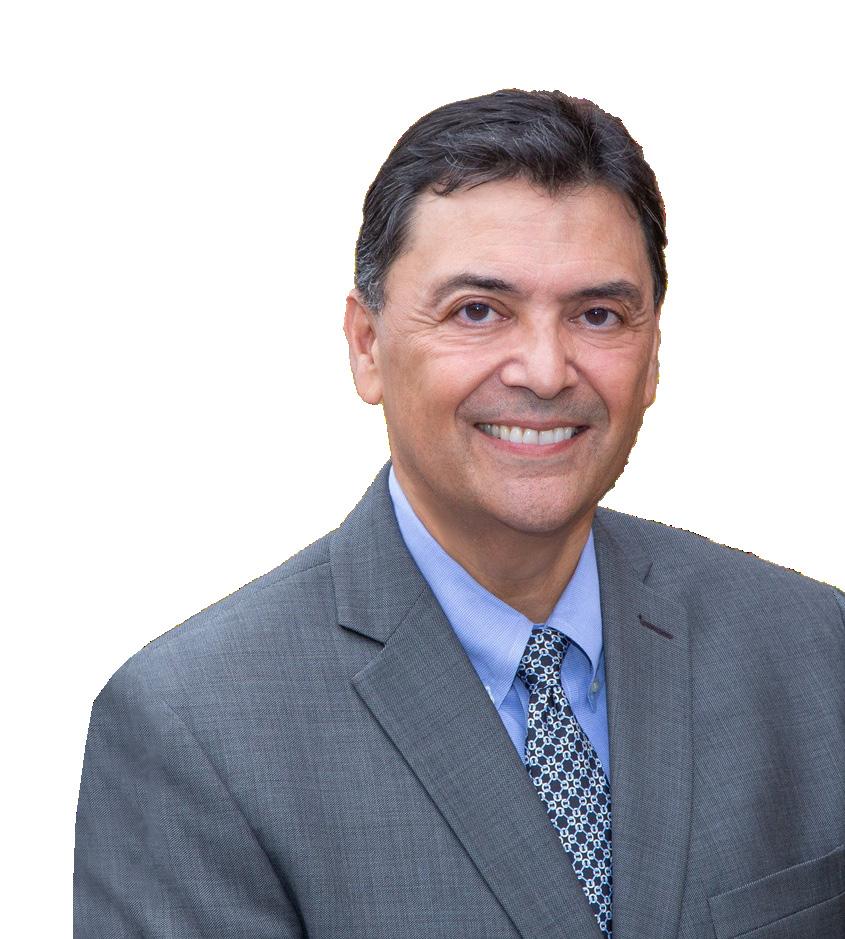
Apply sustainability planning to reap the benefits Black & Veatch is committed to sharing this knowledge and helping clients preplan sustainability. Measurement against current and completed projects is one way of educating organisations on what they can

INDUSTRY: ENGINEERING
LOCATION: UNITED STATES
JC Alonzo is a Senior Environmental Sustainability Specialist at Black & Veatch and aids clients with the implementation of environmental goals in sustainability, resiliency and comprehensive plans and programmes. Alonzo utilises a standards framework, Envision®, from the Institute of Sustainable Infrastructure, to integrate and measure sustainable indicators on infrastructure projects. He has led verified award-winning water, power and transportation projects through environmental impact discussions, planning, design and construction. In addition, Alonzo supports Black & Veatch’s internal sustainability programmes and works across the

As utilities around the world face the consequences of the climate crisis, Black & Veatch’s global advisory practice helped California’s San Diego Gas & Electric (SDG&E) establish an action plan to address the public and regulatory pressures driving governments, businesses and utilities alike to develop the most-viable pathways for economywide decarbonisation.
Black & Veatch provided technical advising, subject matter expertise, and economic and power market modelling services to SDG&E as that utility developed The Path to Net Zero: A Decarbonisation Roadmap for California to meet the state’s goal of achieving carbon neutrality by 2045.
The study’s creation can be broken down into two main portions followed by a third: demand-side modelling and supply-side modelling, followed by reliability testing. Modelling determined the cost-optimal mixture of technologies needed to satisfy the state’s increasing energy demand while meeting decarbonisation targets. This informed the plan for upgrades and development to the state’s infrastructure systems, which was tested multiple times against the industry standard for reliability to ensure it could hold up to real-world demands.
As SDG&E and California inch closer to their 2045 net-zero goals, this roadmap stands as a model for other utilities and states as they also work to upgrade power systems and lower emissions.
achieve — and it’s a clear goal for many of them — but to get to the heart of their goals, Black & Veatch targets ESG at the concept phase.
“Almost all of our clients have statements and reports that set out their goals and efforts, but few have mapped
all those goals to include their project impacts,” says Alonzo.
“We introduce them to Envision, an infrastructure rating tool we use to measure and track their resource use, to identify how they can cut their emissions and energy consumption, and then to focus on resilience both in the short- and long-term.”
Aligning projects to company ESG goals means reducing impact on specific classes of individuals, minimising the use of virgin natural resources, eliminating greenhouse gas emissions, and cutting the process of importing water. Also, it’s important to consider waste and the end-of-life procedure for materials as the circular economy influences project design.
“When organisations accept full responsibility for their impacts, I think we're going to see a hopeful, new normal,” says Alonzo. “While this doesn't necessarily end the world's problems, it will help us buy time to innovate and prepare for a future with fewer virgin resources.”
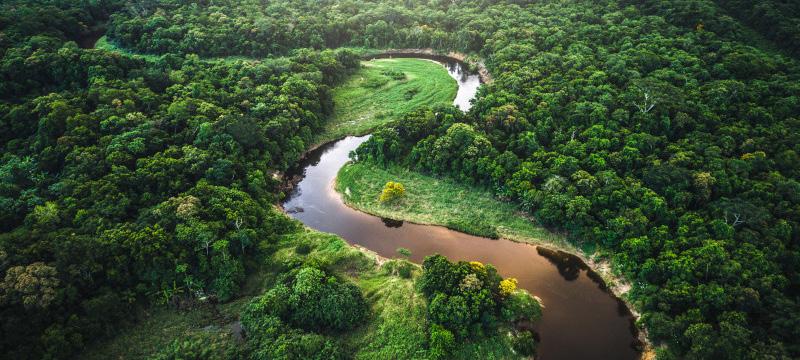

Maryline Daviaud Lewett from Black & Veatch provides her views on necessary developments in infrastructure and technology as we shift to e-mobility
The switch to battery-electric vehicles and fuel-cell technology is a global conversation right now, and both traditional organisations and newcomers in the transport industry are putting more resources into electrification as a strategy for sustainability. It’s important to understand that the effects of electric vehicles (EVs) apply to all industries beyond traditional automotive brands — much like the overarching topic of sustainability.
Providing the necessary expertise to facilitate the switch for clients, Black & Veatch is working with clients to incorporate electrification into their daily
operations. All things are considered — including the challenges of long-distance transport on the ground, overseas and in the air — as well as the required infrastructure to support localised transport, which is transitioning towards a more systematic approach.
As Director of Business Development at Black & Veatch, Maryline Daviaud Lewett works with clients to advise on all aspects of transitioning to zero-emission vehicles, from financing projects to executing major infrastructure developments.
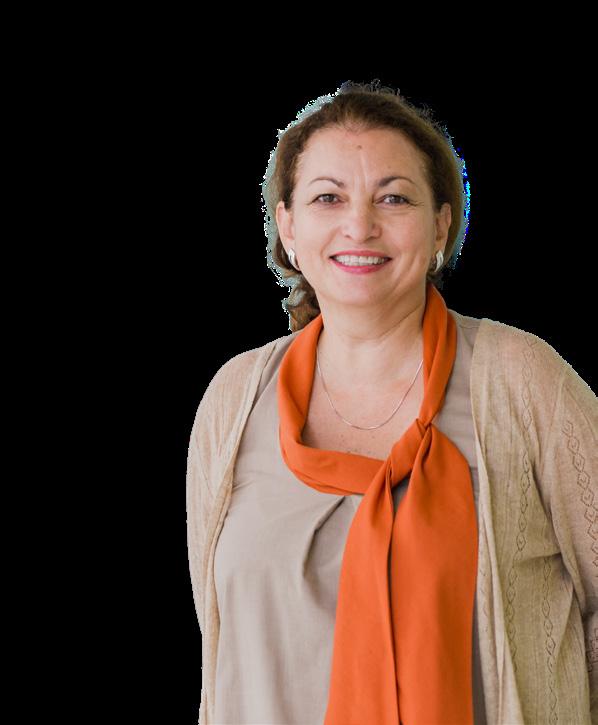
“We need to build the charging and clean fueling infrastructure to support the vehicles. Our clients are often surprised by how long that can take,” Daviaud Lewett says.

While electrification is paramount in the emissions crunch, the delayed delivery of EVs plays into the hands of developers as there is still work to be done before charging and infrastructure are ready for fully-electric transport.
“How long the infrastructure takes to build depends on the size of the hub and charging system, as well as how many hubs their fleets need. Eight-to-nine months is a minimum, ranging as long as 18 to 24 months. Access to power and adequate power supply are vital to EV charging
INDUSTRY: ENGINEERING
LOCATION: UNITED STATES
Maryline Daviaud Lewett is a Director of Business Development at Black & Veatch and leads sales and partnerships in distributed infrastructure and sustainable transportation. Daviaud Lewett and her team have extensive experience in design and engineering, procurement and construction of electric vehicle charging infrastructure networks, fuel-cell vehicle filling station networks and behind-the-metre energy storage. She has over 20 years of experience in the cleantech, life sciences and software industries. Daviaud Lewett holds a master of business administration degree in sustainability management from the
In a time when data centres are multiplying rapidly—requiring significant water input while scarcity rises—developing technologies to mitigate water use in data centres is paramount.
At the Port of Stockton in northern California, Nautilus Data Technologies’ (Nautilus) commercial floating watercooled data centre combines efficiency with resourcefulness in the use of its patented TRUE™ (Total Resource Usage Effectiveness) technology that mitigates wasted water and energy.
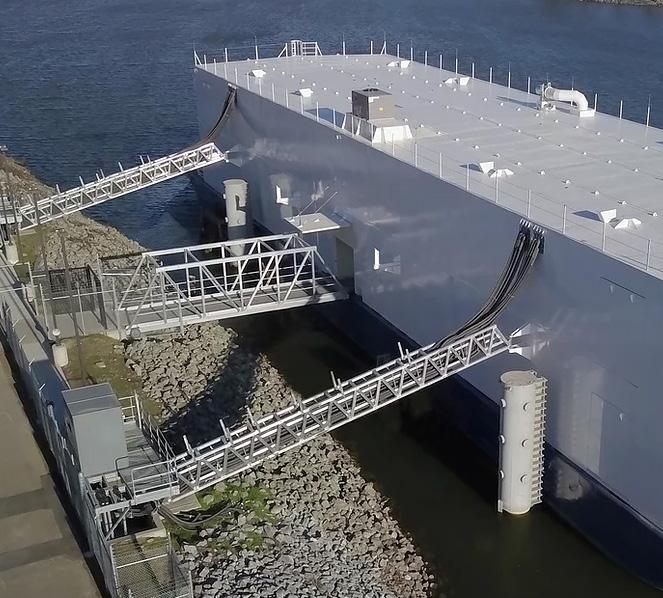
Black & Veatch conducted a third-party due diligence report and commissioning oversight for the seven-megawatt facility and verified that the cooling, electrical and machinery systems functioned as designed. By using recirculated water
from a nearby ocean, river or lake to cool the data centre environment, the water body becomes a heat sink. Therefore, the facility consumes no water, produces no wastewater, and requires no refrigerants or water treatment chemicals, cooling towers or computer room air handlers.
The technology uses less than one-third of the power that traditional computer room air-conditioning would use for cooling and has a low validated power utilisation effectiveness for a commercial data centre of its size. By siting the data centre on a barge, Nautilus also can reduce the facility footprint by up to 60%, and that modular build design allows Nautilus to deploy additional facilities in the same area, using the same connectivity and much of the backbone infrastructure.
sites and if not present, can take time to develop,” says Daviaud Lewett.
“More recently, material and procurement, in general, have experienced much longer lead times to get the necessary equipment on site.”
Sourcing is a key factor in adopting alternative mobility methods. While the application of autonomous driving provides efficiency benefits, the underlying issue of decarbonisation is renewable energy. Sourcing renewable energy is a critical part of decarbonising the energy supply
chain and must be dealt with to ensure that charging is a truly sustainable solution. Alternatively, hydrogen shows major benefits for decarbonisation, particularly in heavy goods transport.
“We are looking at the future of zero emissions involving a mix of technologies,” says Daviaud Lewett. “There’s no single technology that will dominate; different technologies are applicable to different market segments.”
Technology is also a key enabler of decarbonisation, with applications in energy management and the distribution of fleet charging. Energy management through technology means reliance on automation and artificial intelligence (AI) to manage the vehicles on the road and their energy usage. Charge distribution is displayed through lastmile delivery and software solutions provide welcome benefits to logistics firms as they make the transition to electric.
Sustainability brings industries together in ways they never knew coincided. To make actionable progress toward fulfilling sustainability goals, businesses must also ensure partnerships are strong and targets are clear.
Organisations must consistently re-evaluate their supply chains to ensure that all emissions are measured and analysed, they account for all waste products, and that this data proves useful in design and planning of major infrastructure.
Through industry expertise, experience with first-of-a-kind projects with some of the world’s largest companies, and collaboration with stakeholders, Black & Veatch helps businesses reach operational goals and create an enduring sustainability framework.
